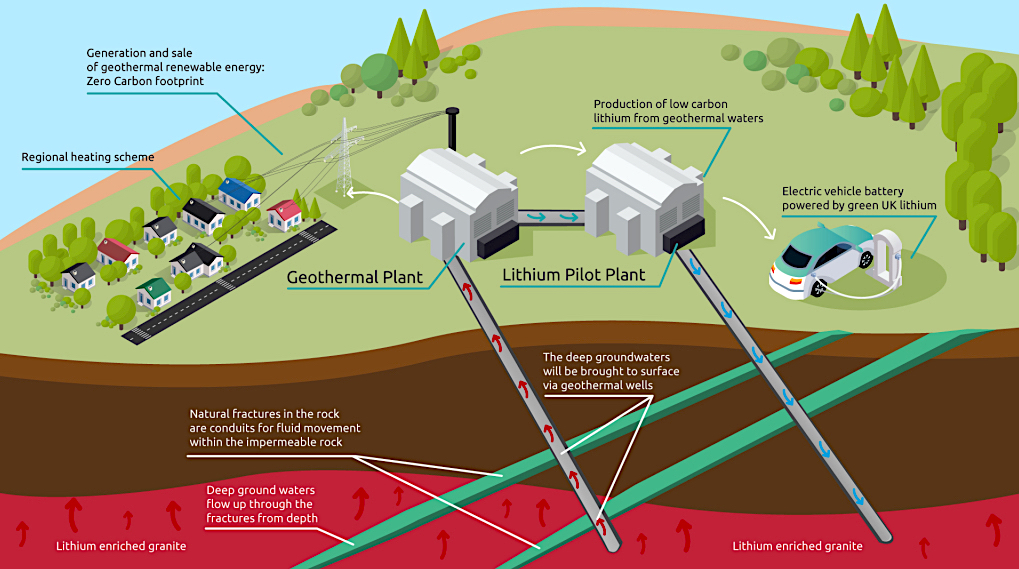It followed 18 months of work involving scoping for suitable lithium mineralisation in hard rock and geothermal waters, field sample collection and analysis, as well as processing production of two separate lithium carbonate concentrates at the WAI Mineral Processing Laboratory.
High purity lithium is a key component of the batteries that power EVs and a critical mineral for the transition to a low carbon future.
The UK government has been working on attracting investment into battery factories in order to protect the future of local car plants.
Figures released in early January by the Society of Motor Manufacturers and Traders, the local industry body, showed new car sales in the UK fell by almost 30% to 1.63 million in 2020, the toughest year for the market since 1992.
UK carmakers have three years to source local electric car batteries, following the Brexit free trade deal inked last year. Under the agreement, all European trade in cars and parts will continue to be free of tariffs or quotas after the Brexit transition period ended on December 31, as long as they contain enough content from either UK or EU factories.
Batteries will at first be allowed to have up to 70% of materials from countries outside the EU or the UK. From 2024 onwards, however, that requirement will tighten to 50%.
In September 2019, the UK government launched the Faraday Battery Challenge as part of the Industrial Strategy Challenge Fund (ISCF), to spur research and innovation.
Li4UK (Securing a Domestic Lithium Supply Chain for the UK) was one of the projects to secure financial backing from the pioneering program, soon to open a fifth round.
Breaking foreign dependency
Most of the world’s lithium is currently produced in huge brine evaporation ponds in South America or open pit mines in Australia. The metal is then shipped to China for processing into lithium chemicals for the manufacture of lithium-ion batteries.
Europe is not too far from commercially producing battery-quality lithium, industry actors believe.
“The development of lithium processing technologies at the WAI labs as part of the Li4UK project has been a huge stepping-stone,” Ben Simpson, technical director for mineral processing at WAI, said in the statement. “What has been achieved here puts the UK at the forefront of developments in the European battery industry.”
“Given the potential that has been established by this project to exploit lithium resources in Cornwall, it is possible that the UK could produce a significant percentage of its lithium demand domestically,” Cornish Lithium chief executive, Jeremy Wrathall, noted.
The miner received a permit earlier this month to explore for the battery metal in geothermal waters off the coast of Cornwall.

Cornish Lithium is targeting four sites where it plans to potentially extract lithium using a low-impact and environmentally responsible process. Mining lithium from geothermal water allows using the same hot rock water to power up turbines, generating zero-carbon electricity and heat.
The £4 million ($5.4m) project will trial direct lithium extraction (DLE) technology, which removes dissolved lithium compounds from water without the need for brine ponds.
Cornwall also provides access to renewable energy from solar and wind, and offers established infrastructure such as rail, road and port facilities – which represent a considerable advantage over other European lithium projects.
The Li4UK consortium is made up of Wardell Armstrong International, The Natural History Museum and Cornish Lithium.




